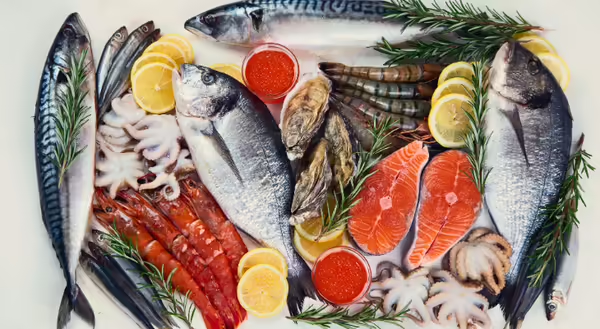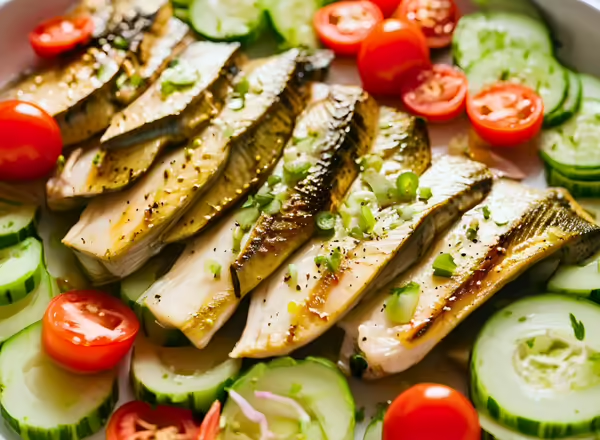
Fish and seafood are such healthy additions to one’s diet, delivering important nutrients such as iron, choline, vitamin D, protein, and omega-3 fatty acids, that the Dietary Guidelines for Americans recommend that adults eat at least eight ounces every week. However, many people have questions when it comes to buying seafood, including its sustainability and potential for contaminants.
Sustainable seafood is one that provides for our needs while including an environment that keeps the fish populations healthy and thriving. In the United States, seafood is either wild-caught or farm-raised. Both methods include strict regulations to keep a sustainable seafood supply. However, according to the NOAA Fisheries, 70-85 percent of the seafood we consume is imported and may not adhere to our same sustainable standards. Aside from sustainability, consumers also want to be assured that seafood is safe and free of potential contaminants, like polychlorinated biphenyls (PCBs) and mercury. As a consumer, there are steps you can take to purchase sustainable and safe seafood. First, check the Country of Origin Labeling, which is required on all seafood labels, and try to purchase seafood caught or farmed in the United States. Also check the NOAA’s www.FishWatch.gov or the Monterey Bay Aquarium’s www.SeafoodWatch.org to search for sustainable seafood. When fishing locally, reduce your exposure to PCB’s by paying attention to the Illinois Department of Public Health’s fish consumption advisories; also remove the skin and fat and cook using a method that allows the fat to drip away, such as grilling, baking or broiling. Children, pregnant and breastfeeding women should avoid seafood with high mercury levels, such as swordfish, orange roughy and king mackerel. Don’t be frightened to consume seafood; both wild-caught and farm-raised are loaded with nutritional benefits!
Sources:
NOAA Fisheries. Understanding Sustainable Seafood. www.fisheries.noaa.gov
Kendall Reagan Nutrition Center. Wild caught vs farm raised seafood. Colorado State University.
About the Author
Jenna Smith is a Nutrition and Wellness Educator with University of Illinois Extension, serving Livingston, McLean, and Woodford Counties. Smith uses her experience as a registered dietitian nutritionist to deliver impactful information and cutting-edge programs to Livingston, McLean, and Woodford Counties and beyond.
